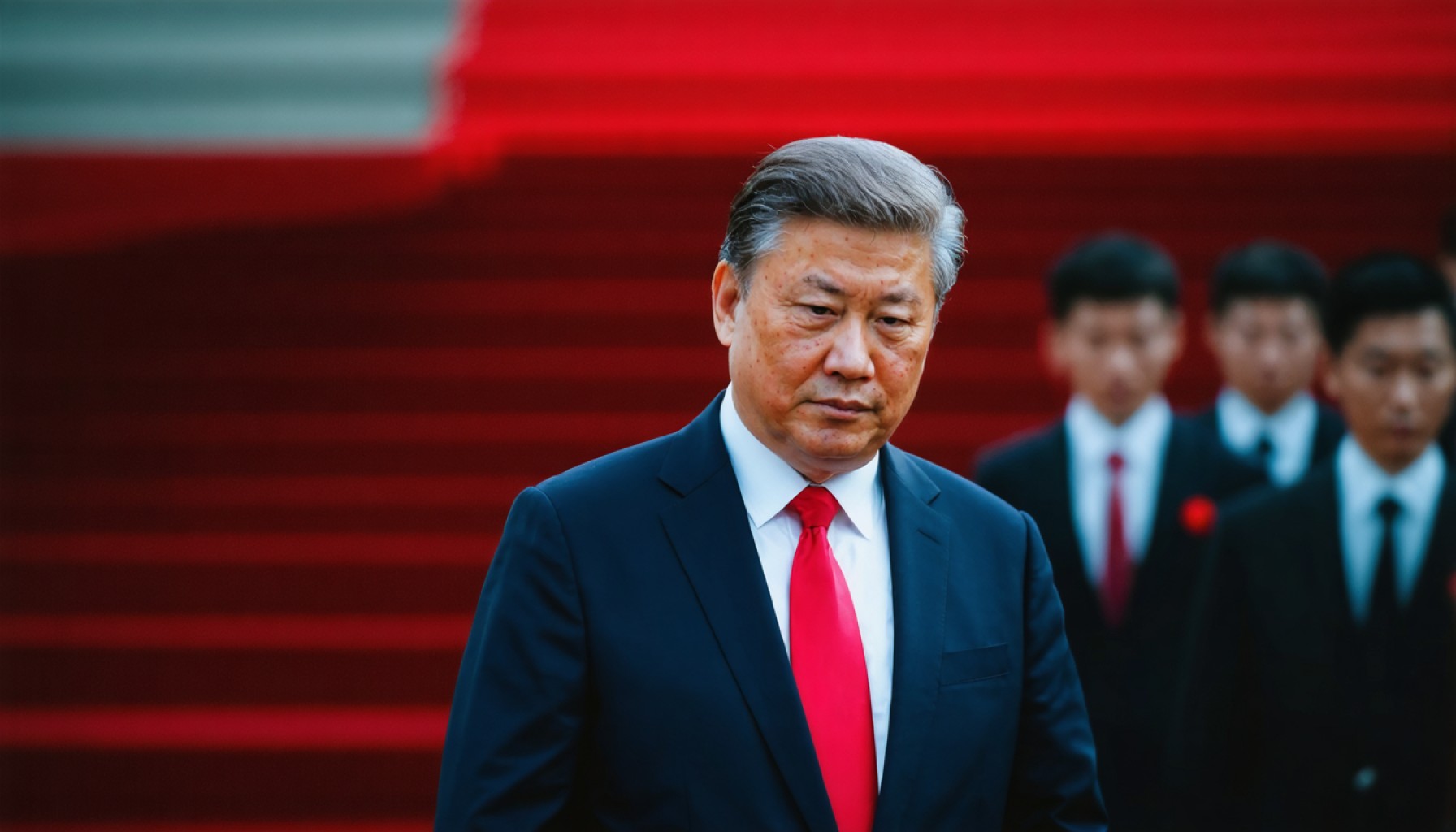- Jiang Chaoliang, a significant political figure, faces scrutiny from China’s anti-corruption watchdog amid allegations of misconduct.
- Jiang has held influential roles, such as Governor of Jilin and Party Secretary of Hubei, impacting China’s economic strategies.
- The Central Commission for Discipline Inspection and the National Supervisory Commission lead this high-profile investigation.
- This situation highlights issues of transparency and integrity within China’s political system.
- The investigation underscores the ongoing commitment to combat corruption and maintain accountability among leadership.
- The unfolding events serve as a reflection on leadership’s role in shaping China’s future amid rapid economic progress.
A sudden jolt ripples through China’s political sphere as the powerful anti-corruption watchdog turns its gaze upon an influential figure. The internet buzzes with news that Jiang Chaoliang, a seasoned politician and Deputy Director of the Agriculture and Rural Affairs Committee, is under intense scrutiny. Allegations of severe misconduct hang heavy in the air, tainting a career that has seen Jiang wield significant influence over regions critical to China’s economic strategies.
Born in the summer heat of 1957, Jiang’s journey through the ranks of Chinese politics is storied and complex. From steering the progress of Jilin province as Governor to overseeing Hubei as Party Secretary, his roles have placed him at the heart of major policy transformations. However, this latest turn of events shines a harsh light on transparency and integrity within the corridors of power.
The fiery eyes of the Central Commission for Discipline Inspection and the National Supervisory Commission are now firmly fixed on uncovering the truth. This marks yet another high-profile investigation in the relentless campaign against corruption, a clear signal of the ongoing commitment to cleaning up governance.
As the story unfolds, it serves as a stark reminder of the precarious balance between power and accountability. In a system where rapid economic progress meets complex political governance, these investigations are not mere headlines; they are essential checks ensuring that those in authority remain answerable to the principles they are sworn to uphold. Stay tuned as this investigation progresses, offering not just scandal but a broader reflection on the role of leadership in shaping China’s future.
Unmasking Power: The Jiang Chaoliang Investigation and Its Broader Implications
How-To Steps & Life Hacks: Navigating News on Political Investigations
When following political investigations, especially those as high-profile as Jiang Chaoliang’s case, it’s crucial to adopt a discerning approach:
1. Diversify Your Sources: Read from reputable international and local news outlets to avoid bias.
2. Track Official Statements: Monitor updates from official bodies like China’s Central Commission for Discipline Inspection for verified information.
3. Understand Context: Learn about the political and economic environment surrounding the case.
Real-World Use Cases: Political Investigations and Governance
Political investigations like Jiang’s offer insights into governance:
– Accountability in Leadership: Such cases highlight the mechanisms in place to ensure leaders remain accountable.
– Impact on Policy: The outcomes of these investigations can lead to shifts in policy direction and implementation.
Market Forecasts & Industry Trends: China’s Anti-Corruption Drive
China’s ongoing anti-corruption drive signals a trend toward greater transparency and accountability:
– Stable Investment Climate: Efforts to curb corruption can foster a stable business environment, encouraging foreign investment.
– Policy Reforms: Expect continued reforms aimed at strengthening governance structures.
Reviews & Comparisons: Jiang Chaoliang’s Influence
Jiang’s career path stands out in comparison to peers:
– Regional Development: Under his leadership, provinces like Hubei experienced significant economic and infrastructural growth.
– Policy Implementation: His influence on agricultural policy has been notable, shaping key economic strategies.
Controversies & Limitations: Scrutiny in Political Structures
The challenges faced in rooting out corruption include:
– Opaque Processes: The lack of transparency in investigations can lead to skepticism about outcomes.
– Political Motives: Accusations may be politically motivated, complicating public perceptions.
Features, Specs & Pricing: Anti-Corruption Measures
The tools and methodologies employed by China’s anti-corruption bodies are sophisticated:
– Digital Surveillance: Advanced technologies aid in monitoring and investigation.
– Policy Frameworks: New anti-corruption policies are regularly introduced to close existing loopholes.
Security & Sustainability: Integrity in Governance
Ensuring integrity in governance contributes to:
– Long-term Stability: Transparent governance fosters public trust and political stability.
– Sustainable Growth: Corruption-free environments support sustainable economic development.
Insights & Predictions: The Future of Anti-Corruption
Predictions for the future include:
– Increased Scrutiny: Continued emphasis on monitoring government officials will persist.
– Global Influence: China’s anti-corruption campaign may serve as a model for other nations.
Tutorials & Compatibility: Engaging with the Political Landscape
For citizens looking to engage:
– Education: Stay informed about political processes through educational programs.
– Participation: Informed voting and civic participation can influence governance positively.
Pros & Cons Overview: Anti-Corruption Campaigns
Pros:
– Promotes transparency and accountability.
– Enhances international reputation.
Cons:
– Risk of political manipulation.
– Potential short-term disruptions in political stability.
Actionable Recommendations
1. Stay Informed: Leverage verified news platforms and official announcements.
2. Engage Constructively: Participate in civic activities and education programs to better understand governance.
3. Critical Evaluation: Always assess political events and news critically, balancing different viewpoints.
For more insights on global political and economic affairs, visit the BBC or Reuters. These platforms provide comprehensive and unbiased reporting, aiding in understanding complex global issues.
